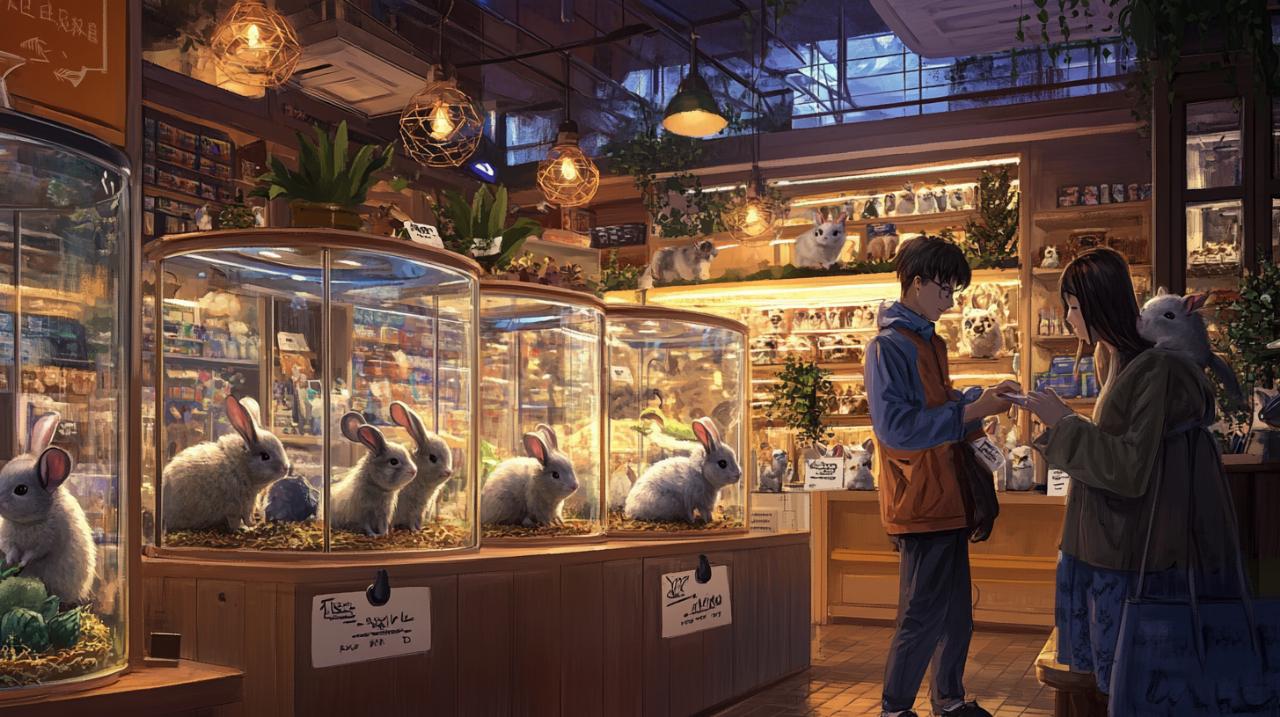Bringing a chinchilla into your home can be a delightful experience, yet many prospective owners find themselves wondering how to manage the costs without compromising on quality. From choosing the right source for your furry friend to finding practical supplies and planning for their healthcare, there are several strategies to make chinchilla ownership more affordable. This guide explores how to navigate the initial purchase and setup expenses whilst ensuring your pet enjoys a happy and healthy life.
Understanding chinchilla purchase prices across france
When you begin your search for a chinchilla in France, you will quickly discover that prices vary depending on where you look and what type of chinchilla you choose. On average, expect to pay between €150 and €400 for a chinchilla, though this range can shift based on factors such as the animal's colour, age, and the reputation of the seller. The key to keeping costs manageable is understanding the different purchasing routes available and making informed decisions that suit both your budget and the welfare of your new pet.
Where to Find Affordable Chinchillas: Breeders vs Pet Shops
Deciding where to purchase your chinchilla is one of the most important choices you will make. Pet shops often stock chinchillas at prices towards the higher end of the spectrum, partly due to overheads and the convenience they offer. However, purchasing directly from a reputable breeder can sometimes result in a lower price, especially if the breeder is local and operates on a smaller scale. Breeders who specialise in chinchillas may also provide more detailed health histories and advice, which can be invaluable for first-time owners. Another option worth exploring is adoption from animal rescue centres, where you might find chinchillas in need of a loving home at little to no cost. Not only does this approach save money, but it also offers a second chance to an animal that may have been surrendered or abandoned. When evaluating breeders or rescue centres, always prioritise those who demonstrate good animal welfare standards, as a healthy chinchilla will save you significant veterinary expenses down the line.
Breed Variations and Their Impact on Pricing
Chinchillas come in a variety of colours and mutations, ranging from the standard grey to more exotic shades such as beige, violet, or white. The rarity and desirability of certain colour variations can significantly influence the purchase price. Standard grey chinchillas are typically the most affordable option, whilst rarer colours may command a premium due to selective breeding efforts and limited availability. Whilst it might be tempting to opt for a unique colour, remember that all chinchillas require the same level of care regardless of their appearance. If your primary concern is keeping initial costs low, choosing a standard colour can be a practical decision without compromising on the joy and companionship your pet will bring.
Smart shopping for essential chinchilla supplies
Once you have selected your chinchilla, the next step is setting up a comfortable and stimulating environment. The initial setup can be one of the more substantial expenses, with costs ranging from €100 to €300 or more depending on the quality and size of the items you choose. However, with a bit of research and savvy shopping, you can find budget-friendly options that meet your pet's needs without overspending.
Budget-Friendly Options for Cages and Housing
A suitable cage is essential for your chinchilla's wellbeing, as these active animals require plenty of space to climb, jump, and explore. A good chinchilla cage should be tall and spacious, with multiple levels and secure platforms. Whilst premium cages can cost upwards of €200, there are more affordable alternatives available if you shop around. Online marketplaces and second-hand platforms often feature gently used cages at a fraction of the original price, and many are in excellent condition. Before purchasing a used cage, inspect it carefully for any rust, broken bars, or sharp edges that could harm your pet. Additionally, consider DIY modifications to enhance a basic cage, such as adding homemade wooden platforms or ramps, which can be both cost-effective and enjoyable to create. When comparing prices, keep an eye out for sales and discounts at pet supply retailers, particularly during seasonal promotions, as these can offer significant savings.
Cost-Effective Choices for Bedding and Enrichment Toys
Bedding and enrichment toys are ongoing necessities that contribute to your chinchilla's comfort and mental stimulation. For bedding, avoid pine or cedar shavings, as these can be harmful to chinchillas. Instead, opt for kiln-dried aspen shavings or paper-based bedding, which are safer and often available in bulk at lower prices. Purchasing bedding in larger quantities can reduce the cost per use and minimise the frequency of shopping trips. As for enrichment toys, chinchillas love to chew, so providing them with safe wooden toys and chew sticks is essential for their dental health. Rather than buying expensive branded toys, consider sourcing untreated wood blocks or branches from pet-safe trees, which can be a more economical option. Many chinchilla owners also make their own toys using cardboard tubes and safe, natural materials, which not only saves money but also adds a personal touch to your pet's habitat. Rotating toys regularly can keep your chinchilla engaged without the need to constantly purchase new items.
Managing monthly food and nutrition expenses
 Feeding your chinchilla a balanced diet is crucial for maintaining their health and vitality. The monthly costs for food and hay typically range from €15 to €30, depending on the quality and quantity you choose. By making smart purchasing decisions and planning ahead, you can ensure your chinchilla receives excellent nutrition whilst keeping expenses under control.
Feeding your chinchilla a balanced diet is crucial for maintaining their health and vitality. The monthly costs for food and hay typically range from €15 to €30, depending on the quality and quantity you choose. By making smart purchasing decisions and planning ahead, you can ensure your chinchilla receives excellent nutrition whilst keeping expenses under control.
Finding Quality Pellets and Hay at Competitive Prices
High-quality pellets and fresh hay form the foundation of a chinchilla's diet. Pellets specifically formulated for chinchillas provide essential nutrients, whilst hay supports digestive health and helps wear down their continuously growing teeth. When shopping for these staples, it is worth comparing prices across different retailers, both online and in physical stores. Specialist exotic pet suppliers may offer better value than general pet shops, and online retailers often have competitive pricing due to lower overheads. Look for pellets that list quality ingredients and avoid those with excessive fillers or added sugars. Similarly, timothy hay is the preferred choice for chinchillas, and buying it in larger bales rather than small packets can result in substantial savings over time. Some suppliers offer subscription services for regular deliveries of food and hay, which can sometimes include discounts for repeat customers.
Bulk Buying and Subscription Services to Reduce Costs
One of the most effective strategies for reducing ongoing food expenses is to buy in bulk. Purchasing larger quantities of pellets and hay at once not only lowers the unit cost but also reduces the frequency of shopping trips, saving you time and effort. Many suppliers offer discounts for bulk orders, and some even provide free delivery on larger purchases. If storage space is a concern, consider teaming up with other chinchilla owners to split bulk orders, allowing everyone to benefit from the savings. Additionally, some retailers offer subscription services that deliver food and bedding to your door on a regular schedule, often at a reduced price compared to one-off purchases. These services can be particularly convenient and ensure you never run out of essential supplies. By planning ahead and taking advantage of bulk buying and subscription services, you can significantly cut down on your monthly expenses whilst ensuring your chinchilla always has access to the best nutrition.
Planning for Veterinary Care Without Breaking the Bank
Veterinary care is an important aspect of responsible chinchilla ownership, and it is essential to budget for both routine check-ups and unexpected health issues. Whilst exotic pet veterinary care can be more costly than care for more common pets, there are ways to manage these expenses without compromising on your chinchilla's wellbeing.
Routine check-up costs and preventative health measures
Annual check-ups with a veterinarian experienced in exotic pets are recommended to monitor your chinchilla's health and catch any potential issues early. In France, a routine vet visit for a chinchilla can cost approximately €50 to €100, depending on the clinic and the services provided. Preventative care, such as regular monitoring of your chinchilla's teeth and weight, can help avoid more serious and expensive health problems down the line. Some veterinary practices offer wellness plans that include routine check-ups and preventative treatments at a reduced rate, which can be a cost-effective option for regular care. It is also wise to familiarise yourself with common health issues in chinchillas, such as dental disease and gastrointestinal problems, so you can recognise symptoms early and seek prompt treatment. Maintaining a clean and appropriate environment, providing a balanced diet, and minimising stress are all preventative measures that contribute to your chinchilla's long-term health and can reduce the need for costly veterinary interventions.
Pet insurance options and emergency fund strategies
Unexpected veterinary emergencies can be financially challenging, so it is prudent to plan ahead. Pet insurance tailored for exotic pets, including chinchillas, is available from several providers and can help cover the costs of emergency treatment and specialist care. Monthly premiums for chinchilla insurance typically start at around €11, though this can vary based on the level of coverage and the age of your pet. Before committing to a policy, carefully review what is included and excluded, as some insurers may have restrictions on pre-existing conditions or specific treatments. Alternatively, or in addition to insurance, consider setting up an emergency fund dedicated to your chinchilla's healthcare. Saving a small amount each month can build a financial cushion that provides peace of mind and ensures you can afford necessary treatment without delay. Many experienced chinchilla owners recommend having between €500 and €1,000 set aside for unexpected vet bills, as emergency care for exotic pets can quickly add up. By combining insurance with a personal emergency fund, you can feel confident that your chinchilla will receive the best possible care, no matter what health challenges may arise.


